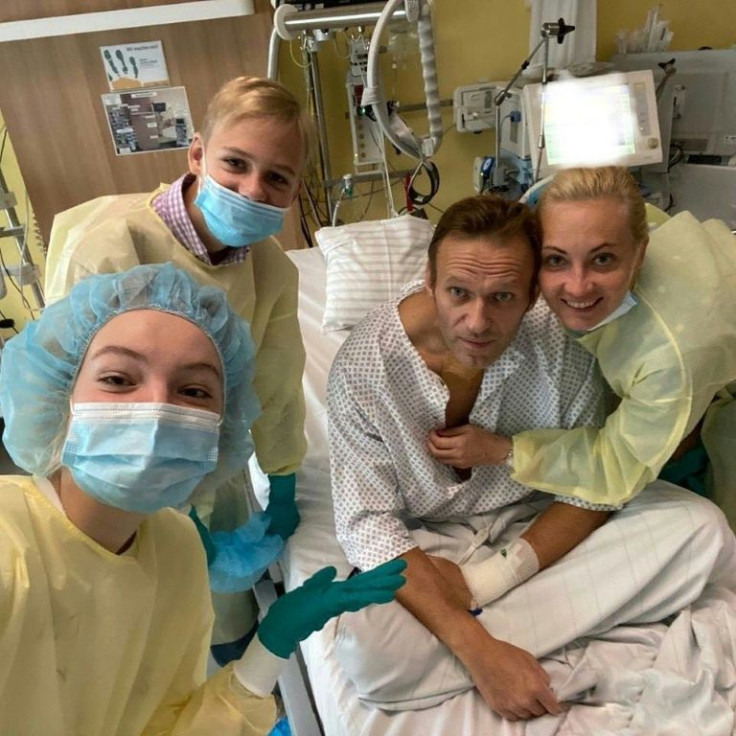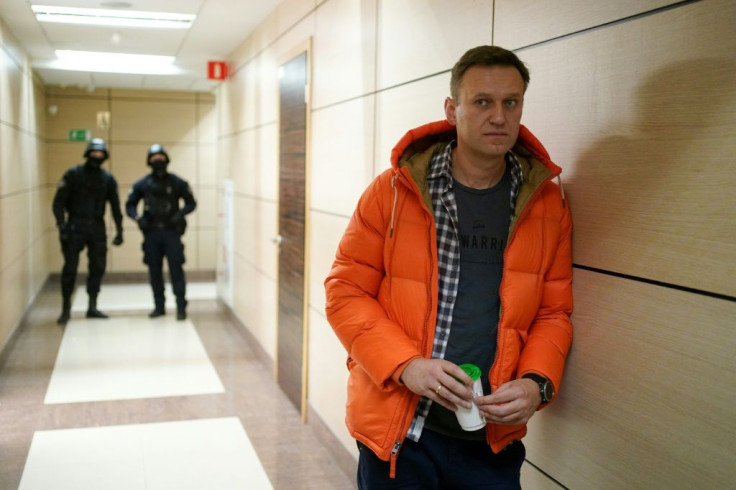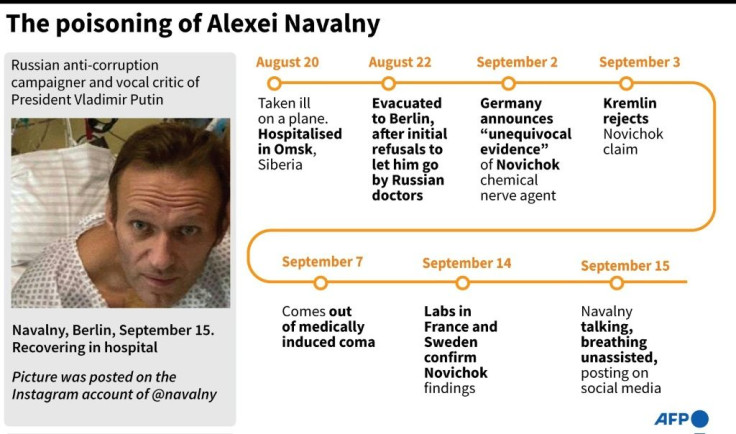Navalny Aides Say Novichok Found On Hotel Water Bottle
Aides of Russian opposition figure Alexei Navalny said Thursday that German experts found Novichok nerve agent on a water bottle taken from the hotel room where he stayed before being taken ill.
The bottle appears to have been key evidence for Germany's conclusion that the 44-year-old lawyer and outspoken critic of President Vladimir Putin was poisoned with the military-grade nerve agent.
Specialists from a German military laboratory found traces of Novichok on a bottle of "Holy Spring" water Navalny left in his hotel room in the Siberian city of Tomsk, his spokeswoman Kira Yarmysh said in a video statement.
The discovery "means that Navalny was poisoned before he left the hotel and not in the airport or on the plane," Yarmysh said.
Navalny collapsed last month on a flight from Tomsk to Moscow after a campaign trip to support opposition candidates in local elections.

Previously aides had suggested he had been poisoned by a cup of tea he drank at an airport cafe.
Navalny is being treated in a hospital in Berlin and on Tuesday said he was breathing for the first time without medical support.
Germany has said it has "unequivocal evidence" that he was poisoned with a Novichok nerve agent and this week reported that labs in France and Sweden had confirmed the findings.
His ally Lyubov Sobol tweeted Thursday that even though the toxin was found on the container, "that doesn't mean Navalny was poisoned specifically by the bottle of water".
He stayed for three nights at Tomsk's Xander hotel, a modern four-star hotel, and also visited its restaurant, according to transport police.

Navalny's team, some of whom were staying at the same hotel, collected the bottle and other items from his room straight after hearing he had been taken ill on August 20.
Yarmysh posted video on Twitter of aides in gloves packing up items left in the hotel room in plastic bags.
"It was decided to take everything that could be hypothetically useful and hand it over to doctors in Germany," Navalny's aides said in a statement.
"It was obvious from the start that the Russian leadership would deny poisoning and the law enforcement authorities would not open a criminal probe and carry out an investigation," Yarmysh said.
The video shows a hotel employee telling the aides not to remove items without police permission, while they refuse to comply.

Russia's Proyekt news site published a detailed investigation on Thursday, citing Navalny's aides.
It wrote that the water bottle was important evidence for German experts because Novichok would have remained intact while it was broken down in Navalny's body.
One of Novichok's creators, Vladimir Uglev, told the site that Navalny's survival meant it was likely he only had skin contact with the poison, suggesting it was not in the water.
Proyekt found that the door to Navalny's room was in view of security cameras and transport police, who are carrying out a pre-investigation check into the circumstances have the footage.
Despite this, a month later, "a criminal probe has still not been opened," Yarmysh complained.
The anti-corruption campaigner's suspected poisoning has sparked condemnation from Western leaders, who have called for a thorough investigation.
The European Parliament on Thursday adopted a non-binding resolution urging the EU to impose "ambitious" sanctions and accusing Russia of systematically targeting the opposition with "political assassinations and poisonings".
Russian foreign ministry spokeswoman Maria Zakharova said Thursday that EU proposals to impose sanctions in Navalny's name were "manifestly anti-Russian".
Russia has dismissed "unsubstantiated claims" over the incident and said its doctors found no trace of toxins.
Germany has not released details of the evidence for Navalny's poisoning with nerve agent.
The global chemical weapons watchdog said Thursday that it had sent experts to Germany to collect samples from Navalny and test results were "forthcoming".
The Hague-based Organisation for the Prohibition of Chemical Weapons (OPCW) said designated laboratories would assess biomedical samples and pass the results to Germany.




















